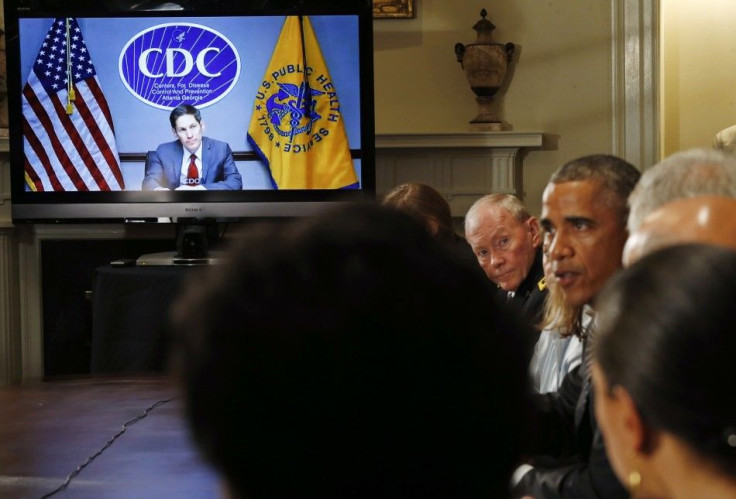Ebola Comes to the U.S.: Tests Come Out Positive in Second Texas Health Worker, Hunt for Other 132 Passengers Start

U.S. President Barack Obama continued to assure American citizens the chances of an Ebola outbreak happening in the country was "very, very low" as he called on authorities to conduct a more aggressive response to future cases in the homeland. On Tuesday, a second American, a health worker from Texas, had tested positive for Ebola.
This, as authorities rush to identify the 132 passengers who shared a 2½ Frontier Airlines flight with nurse Amber Vinson. The 29-year-old nurse was learned to have boarded a commercial flight from Cleveland, Ohio to Dallas. She already had a low-grade temperature at the time. Then while in Ohio, she also reportedly travelled from Cleveland to Akron.
Vinson is the third person diagnosed with Ebola in the U.S. She got the infection from Thomas Eric Duncan and is the second health care worker infected by the same person. Duncan, a Liberian man, had died of the virus on Oct 8.
Mr Obama was supposed to leave for a political trip but had to reschedule it to personally attend to the matter. He immediately gathered Cabinet and Homeland Security officials at the White House on Wednesday afternoon.
Trying painstakingly to downplay concerns, Mr Obama assured citizens right inside the homeland that the case of Vinson as well as those she could have potentially infected among her other 132 co-passengers, were taken "very seriously at the highest levels of government."
"And we are going to be able to manage this particular situation, but we have to look to the future." He said an Ebola "SWAT team" would be immediately deployed "as soon as a new case is diagnosed." He also said health officials would continuously be "monitoring, supervising, and overseeing" efforts to fight the virus "in a more aggressive way" 24/7.
Some finger-pointing and blaming ensued within the CDC, with Dr Tom Frieden, CDC director, saying Vinson should not have flown on [a plane] or allowed to do so. It was learned, however, that it was the CDC that had asked her to come back to Dallas.
Vinson was in Ohio when she started experiencing a temperature of 99.5°F, Dave Daigle, a CDC spokesman, told TIME. "Most doctors would call that a slight temperature, not a fever," he said. "At that point, she was asked by CDC to come back to Dallas so she could be monitored, and she came back."
Daigle added Vinson was cleared to fly because the threshold for a fever is 100.4°F. At the rate things have presented themselves before the CDC right at its hometurf, "we may end up lowering that threshold," Daigle said.





















